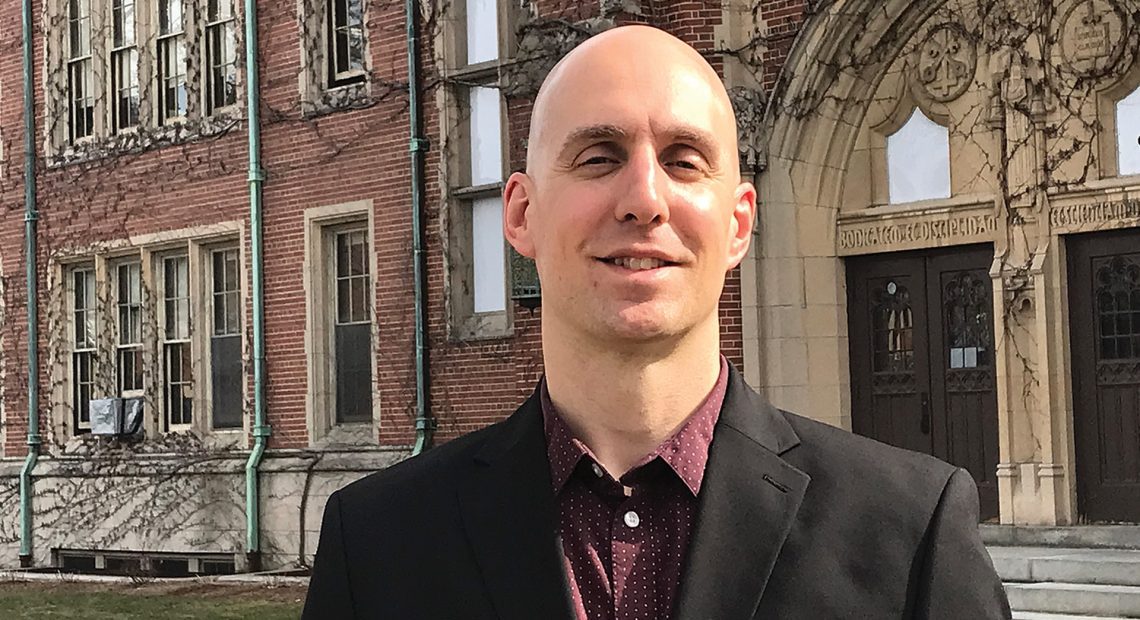Back to School
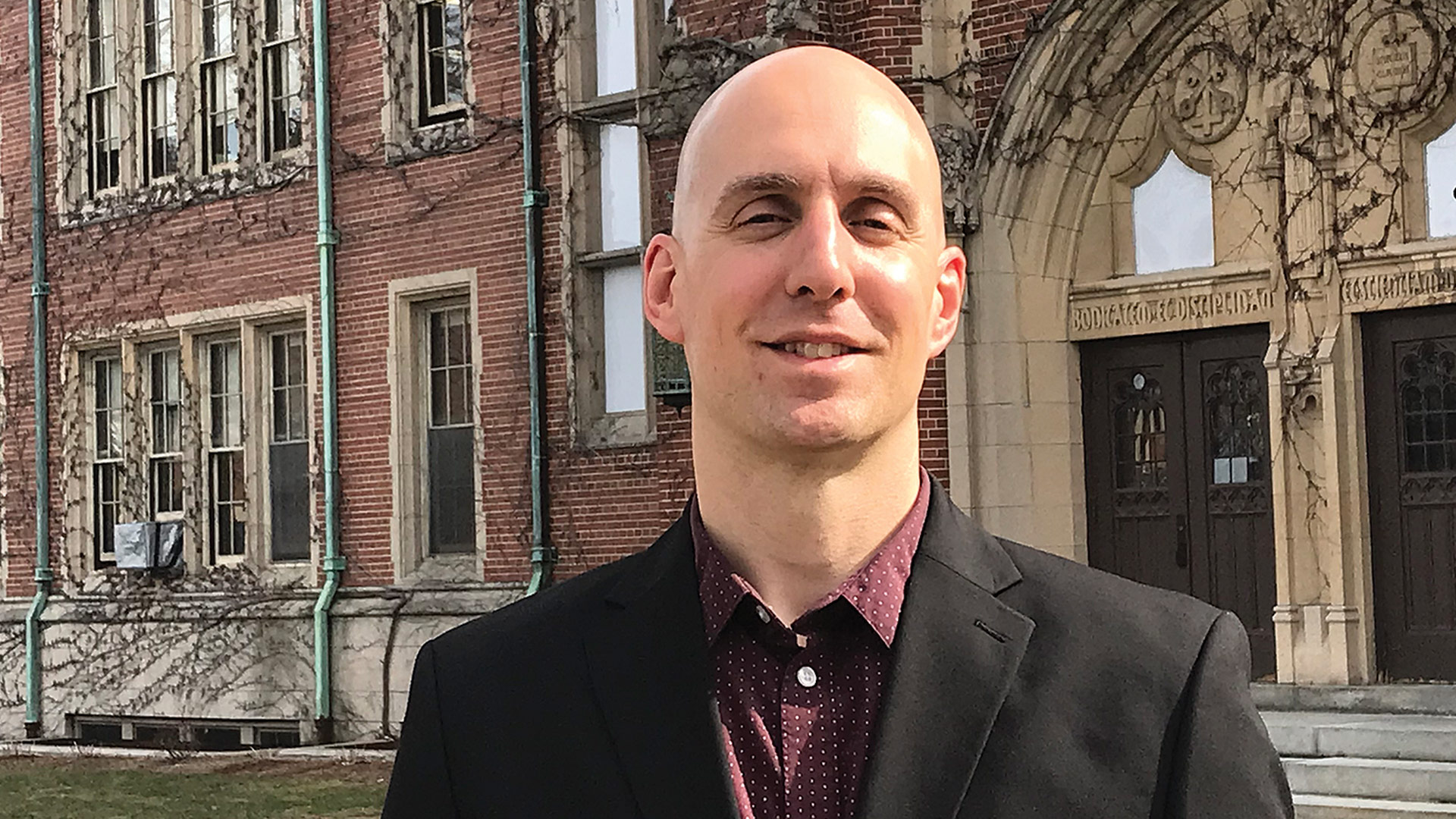
Jonathan Scully says Elms College stays engaged with incoming students from acceptance until they arrive on campus.
After two years of massive shakeups on college and university campuses — from sending students home in 2020 to building remote and hybrid programs and instituting sweeping safety protocols — admissions officers are seeing an uptick in enthusiasm, and applications, from prospective students, sparking hope that the coming fall will mark a return not only to normalcy, but to healthy enrollment numbers.
By Mark Morris
For college enrollment professionals, March and April are the busiest months of the year.
That’s when, after considering thousands of applications, colleges begin reaching out to students who were accepted for the fall semester. April, particularly for four-year institutions, is crunch time, as May 1 is known as National College Decision Day, the deadline for students to submit their acceptance forms and make a deposit.
According to Jonathan Scully, vice president of Enrollment Management and Marketing at Elms College, the job is not done on May 1. He and his staff work with students until they arrive in September.
“When a student has been accepted and they pay their deposit, they’re stoked,” Scully said. “Then they have to wait four months before they come here, so we stay in contact and have events over the summer to make sure that level of engagement stays up.”
There’s plenty of engagement to maintain, as many colleges report that application numbers are hitting new records. In past years, students would typically apply to three or four colleges they hoped to attend. These days, it’s not unusual to see a student apply to 10 or even 15 schools. It’s part of a trend Scully has observed in the last five years.
“With the ability to do everything online, the process has gotten easier,” he said. “As a result, application numbers are hitting astronomical heights.”
He isn’t alone. BusinessWest spoke with several area college-admissions professionals who report that applications are up and admissions are meeting or exceeding expectations. Part of that is a return to some semblance of pre-COVID normalcy. As infection rates have declined, campuses have adopted mask-optional policies, among other shifts, while staying ready to wear them again, if necessary.
Mike Drish
“They want to live in residence halls, join clubs and organizations in person, eat in dining halls, and cheer on our teams.”
Like every organization, colleges quickly shifted to an online presence early in the pandemic and can now offer courses in person, online, or through a hybrid model, with some coursework offered in person and some online. While remote and virtual options performed well when they were needed, surveys of current and prospective students at UMass Amherst show they still want a residential college experience.
“They want to live in residence halls, join clubs and organizations in person, eat in dining halls, and cheer on our teams,” said Mike Drish, director of First Year Admissions at UMass Amherst.
While students crave the campus experience, they also want more flexibility with the academic part of the experience.
“Students and faculty are looking for more opportunities to blend in-person, online, and hybrid learning,” said Bryan Gross, vice president, Enrollment Management and Marketing at Western New England University (WNE). “They want to know to know more about the technology that exists and how it can enhance learning and outcomes.”
The benefits of this new remote world has brought benefits outside the classroom, said Gina Puc, vice president of Strategic Initiatives at Massachusetts College of Liberal Arts. Now that so many people are comfortable with Zoom, she noted, MCLA’s events can have an impact beyond the campus.
“We’ve been able to host a number of guest speakers and lectures on Zoom and open them to the public,” Puc said. “That has really expanded our audience.”
Community Spirit
A common theme admissions professionals discussed with BusinessWest involved “meeting students where they are.” At UMass, Drish said, that can mean expanding access to students from a variety of backgrounds and involving other departments on campus to ensure success for the student.
Meeting students where they are is central to the mission at community colleges. With up to half of their enrollments occurring after July 1, community colleges have a different timetable and different priorities for the application and acceptance process than four-year schools.
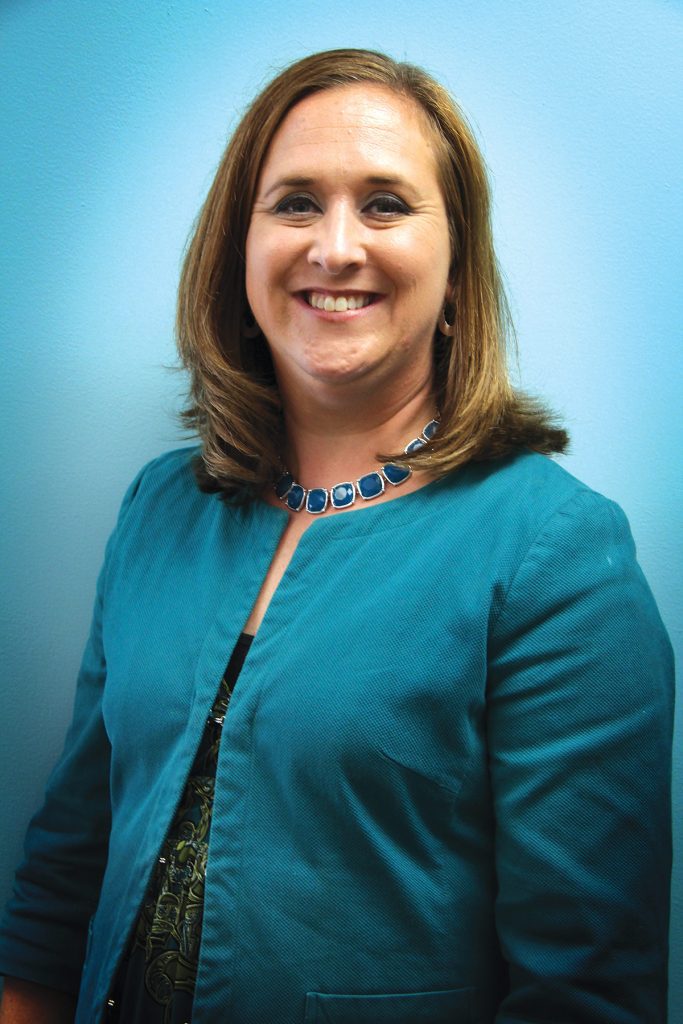
Darcey Kemp says STCC has broadened the way it meets student needs over the past two years.
As the pandemic begins to wane, Mark Hudgik, director of Admissions for Holyoke Community College (HCC), said many high-school students graduating in June are fatigued and feeling uncertain about college because of all the disruption in their high-school careers.
“We have conversations with students who question if they are ready for college, if they are prepared enough,” Hudgik said. “Even if they’re not ready to start, we will stay connected with them to help however we can, and when they are ready, we’re here for them.”
Darcey Kemp, vice president of Student Affairs at Springfield Technical Community College (STCC), said maintaining “high-touch” connections with students helps keep them on track whether it’s through flexible course offerings or by supporting non-academic needs.
“We provide non-perishable food items for students who have food insecurity,” Kemp said, noting that, before the pandemic, students could stop by Student Affairs and get what they needed, but since the pandemic, STCC has adjusted the program so students can now call or text and receive a package of food or an envelope with a gift card to a grocery store.
“It’s all part of being responsive and providing support based on what students tell us they need,” she added.
Like many organizations, the STCC website has a ‘chat now’ pop-up screen for student questions. Kemp said what was once a rarely used function has turned into a meaningful way to provide additional services to students.
“Before the pandemic, we might see 200 engagements a month,” she noted. “Now, on busy months, we have upwards of 4,000 unique monthly engagements.”
Since the pandemic, more students are seeking courses to gain entry-level jobs in professions that allow them to work while pursuing higher academic credentials, Hudgik explained. For example, a student may sign up for a non-credit certified nurse aide (CNA) course to get their foot in the door in healthcare and, from there, take courses for practical nursing and eventually registered nursing programs.
Community colleges remain a popular way for students to complete the first two years of an undergraduate degree and transfer those credits to a four-year college or university. In addition to providing great value, pursuing an associate degree can change a person’s life.
“We try to reach students who don’t see themselves as learners,” Hudgik said. “When they come to HCC, we will meet them where they are and help them build the skills they need so they can go on to the schools of their choice.”
Since the pandemic, it’s probably not surprising that several colleges are reporting an increase in student enrollment in healthcare majors.
“Our health science major has seen a 35% increase over the last three years,” Puc said. “It’s become an in-demand major as students become more aware of public health, immunology, epidemiology, and similar subjects.”
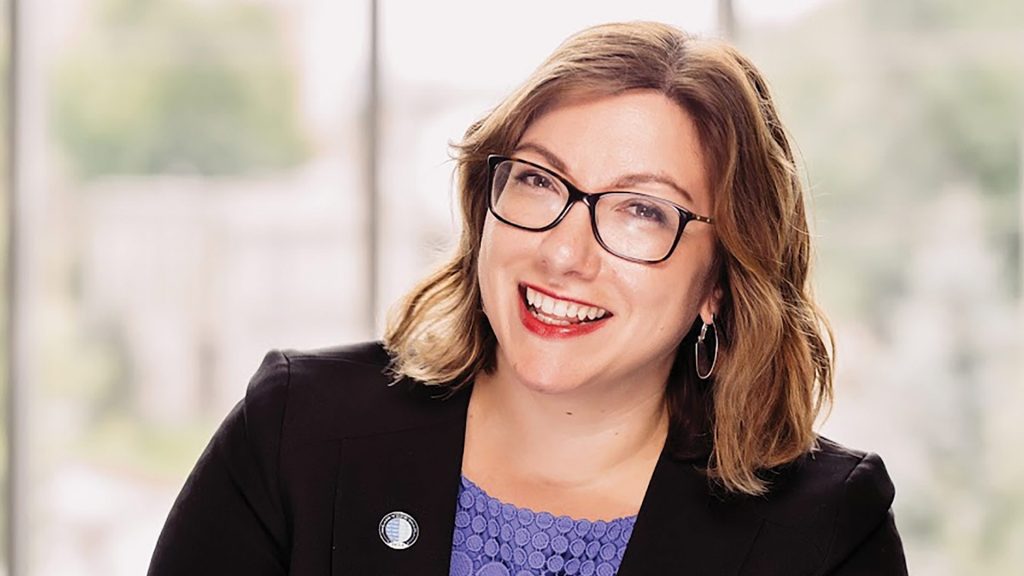
Gina Puc says the move to remote learning during the pandemic has brought long-term benefits, with MCLA continuing to expand its geographic reach, and its audience, with its events.
While pharmacy programs at WNE have long been popular, students can now pursue a master’s degree in pharmacogenomics.
“This area of study looks at how a person’s genetic makeup can affect their response to therapeutic drugs,” Gross explained. “Graduates in this degree can go into genetic counseling, traditional pharmacy, as well as areas of research or teaching.”
Another new major influenced by current events involves bachelor’s- and master’s-level courses devoted to construction management. Gross said these offerings are the result of the federal infrastructure bill passed last year.
“We’ve had lots of interest in this subject from freshman on campus, as well as our community-college partners,” he noted. “We’re finding more people want to acquire the necessary skills to be part of the infrastructure movement.”
Gross described WNE as a “new traditional” university that prepares learners and earners for the future of work. “That message has resonated with families, to know we put a lot of value on the traditional campus environment while also focusing on work, jobs, and outcomes.”
“Even if they’re not ready to start, we will stay connected with them to help however we can, and when they are ready, we’re here for them.”
He added that the recent U.S. News and World Report ranking of top colleges showed that WNE graduates had a higher starting salary than 52 of the top 100 universities on the list.
Welcome Mat
Colleges have already begun holding events to welcome new students accepted for the fall semester.
“We’re excited that we can now have these events in person,” Puc said. “We usually hold them on Saturdays with faculty there as well. It’s a great way for students to meet other students and become more acquainted with the MCLA community.”
This past fall, when Omicron numbers were trending up, Scully had to cancel the open-house events for prospective students he would normally host. For small colleges like Elms, in-person events are essential.
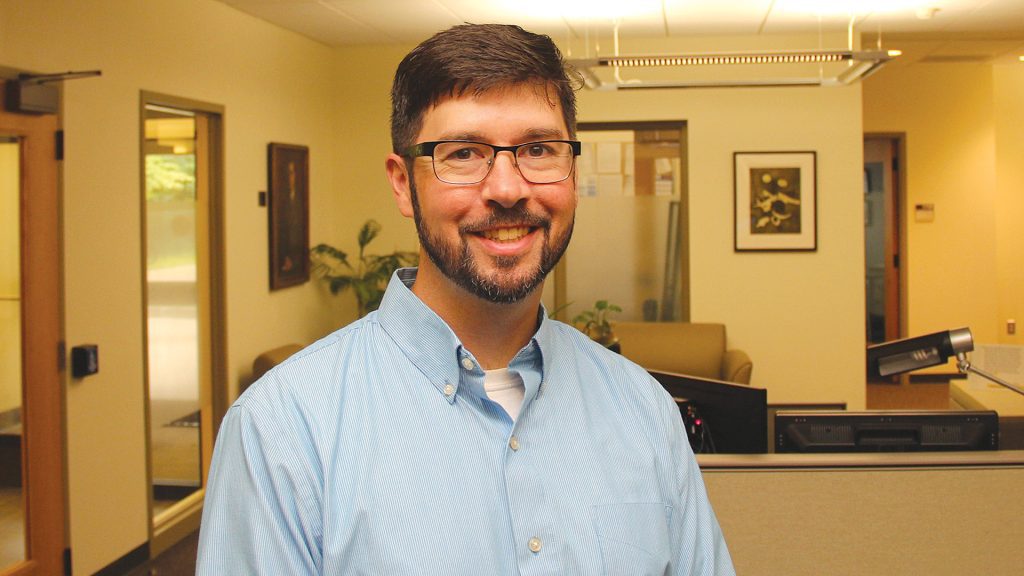
Mark Hudgik says HCC tries to reach students who don’t see themselves as learners, one of the important qualities community colleges bring to the table.
“On paper, there are so many small liberal-arts colleges, students need a way to find out what makes us different,” he said.
There are occasions when a student will complete the application and acceptance process, send in their deposit, and have their plans change before September. Scully referred to this as the “summer melt.” Drish noted that, even when someone’s plans change, he doesn’t worry. “We have students on the waitlist we can contact who will be excited to say ‘yes.’”
After the pandemic, making a few changes is the easy part. Hudgik discussed what a new normal might look like.
“I’m optimistic that we will emerge to a place where folks understand what it means to plan for the uncertain,” he said, adding that he hopes issues like childcare, remote schooling, and job uncertainty will begin to lessen so students can put a renewed focus on their academic careers.
Gross agrees that COVID has provided a real education. “We’ve learned a lot about collaborating, how to be agile, how to respond to environmental circumstances, as well as responding to the needs of our students,” he said.
For the next several months, admissions professionals will stay plenty busy making sure the next class of students settle into their colleges and universities.
“The day when students return to campus is my favorite day of the year,” Scully said. “I look forward to the fall when students are here because there’s life on campus again.”
While he enjoys stopping to appreciate the fall campus scene, Scully knows there are plenty of new prospective students out there who need to be contacted.
“Once the fall class is settled, then we rinse and repeat. Our staff hits the road, and we start recruiting again.”



